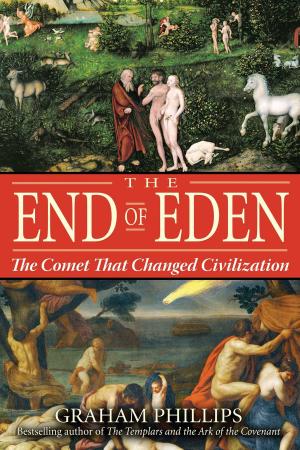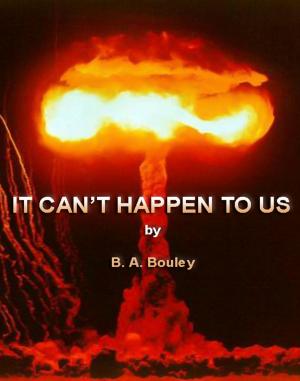The Achievements And The Days Book V. The Improbable Rise Of The Free Man
Nonfiction, Religion & Spirituality, Reference, Comparative Religion, History, Civilization| Author: | Roland Maes | ISBN: | 9782953933239 |
| Publisher: | Roland Maes | Publication: | May 3, 2011 |
| Imprint: | Smashwords Edition | Language: | English |
| Author: | Roland Maes |
| ISBN: | 9782953933239 |
| Publisher: | Roland Maes |
| Publication: | May 3, 2011 |
| Imprint: | Smashwords Edition |
| Language: | English |
The emphasis of the final book covers the history, politics and art of the past centuries in Europe. A characteristic noted in each of the previous books is even more evident in this book: an incredible accumulation of facts and opinions throughout each chapter, often with multiple points in each paragraph. As in the other books, the amount of information contained on virtually every page is truly remarkable.
The characteristic that distinguishes this book from the others is the extensive judgmental input of the author. He describes his very strong negative evaluation of a variety of historical events and powerful criticism of the role that various religions (Judaism, Islam, and the earliest protestant groups) have played in the course of human history over the past years. He decries the loss of the social responsibility and humanity found in the teachings of Jesus and the earliest Christians, a loss fostered by other theologies and by the power-hungry efforts of secular leaders. The author is particularly critical of the French role in this tragic evolution. Indeed, the stretch of time is noted in that Charlemagne’s “…empire crumbled down on his death but the martial kleptocratic spirit thrived further in Frankish territories. By this means, France was able during centuries to follow a policy of ferocious territorial expansion.” And these characterizations are said to flow through to the present day: The author states, “The welfare of the leadership of France has steadfastly increased during the last 50 years whereas the poverty of the common citizen has also increased: in 1980 about 20% of French households were deemed unable to pay income taxes, this percentage has increased to a staggering 50% in 2008.” The leaders of the French revolution and the subsequent reign of Napoleon receive their share of negative appraisal.
The implication of the detailed account of the role that France has played in the history of civilization is that it is unique in its negative effects induced by a society. Although the author praises the more egalitarian and progressive thrust of the countries of Anglo-Saxon origin, he does note in various places such events as the decimation of American Indians, the effect of the Raj on workers in India, slavery and the slave trade, etc.
To conclude, these 5 books represent a monumental effort to provide a framework for examining the progression of the improbable events required to bring the human race to its current state. These events include the earth’s derivation from the Big Bang, the geophysical characteristics of the evolving earth that allowed it to support life and then the evolution of life itself from single cell to animal to humans. This was followed by the torturous progression – and frequent regression – from prehistoric man to what we refer to as civilized man. The books also document the failures of man to live up to the ideals that some have fervently set for the human race. It leaves open the hope that further progress will lead us closer to the ideal of human behavior.
The emphasis of the final book covers the history, politics and art of the past centuries in Europe. A characteristic noted in each of the previous books is even more evident in this book: an incredible accumulation of facts and opinions throughout each chapter, often with multiple points in each paragraph. As in the other books, the amount of information contained on virtually every page is truly remarkable.
The characteristic that distinguishes this book from the others is the extensive judgmental input of the author. He describes his very strong negative evaluation of a variety of historical events and powerful criticism of the role that various religions (Judaism, Islam, and the earliest protestant groups) have played in the course of human history over the past years. He decries the loss of the social responsibility and humanity found in the teachings of Jesus and the earliest Christians, a loss fostered by other theologies and by the power-hungry efforts of secular leaders. The author is particularly critical of the French role in this tragic evolution. Indeed, the stretch of time is noted in that Charlemagne’s “…empire crumbled down on his death but the martial kleptocratic spirit thrived further in Frankish territories. By this means, France was able during centuries to follow a policy of ferocious territorial expansion.” And these characterizations are said to flow through to the present day: The author states, “The welfare of the leadership of France has steadfastly increased during the last 50 years whereas the poverty of the common citizen has also increased: in 1980 about 20% of French households were deemed unable to pay income taxes, this percentage has increased to a staggering 50% in 2008.” The leaders of the French revolution and the subsequent reign of Napoleon receive their share of negative appraisal.
The implication of the detailed account of the role that France has played in the history of civilization is that it is unique in its negative effects induced by a society. Although the author praises the more egalitarian and progressive thrust of the countries of Anglo-Saxon origin, he does note in various places such events as the decimation of American Indians, the effect of the Raj on workers in India, slavery and the slave trade, etc.
To conclude, these 5 books represent a monumental effort to provide a framework for examining the progression of the improbable events required to bring the human race to its current state. These events include the earth’s derivation from the Big Bang, the geophysical characteristics of the evolving earth that allowed it to support life and then the evolution of life itself from single cell to animal to humans. This was followed by the torturous progression – and frequent regression – from prehistoric man to what we refer to as civilized man. The books also document the failures of man to live up to the ideals that some have fervently set for the human race. It leaves open the hope that further progress will lead us closer to the ideal of human behavior.















